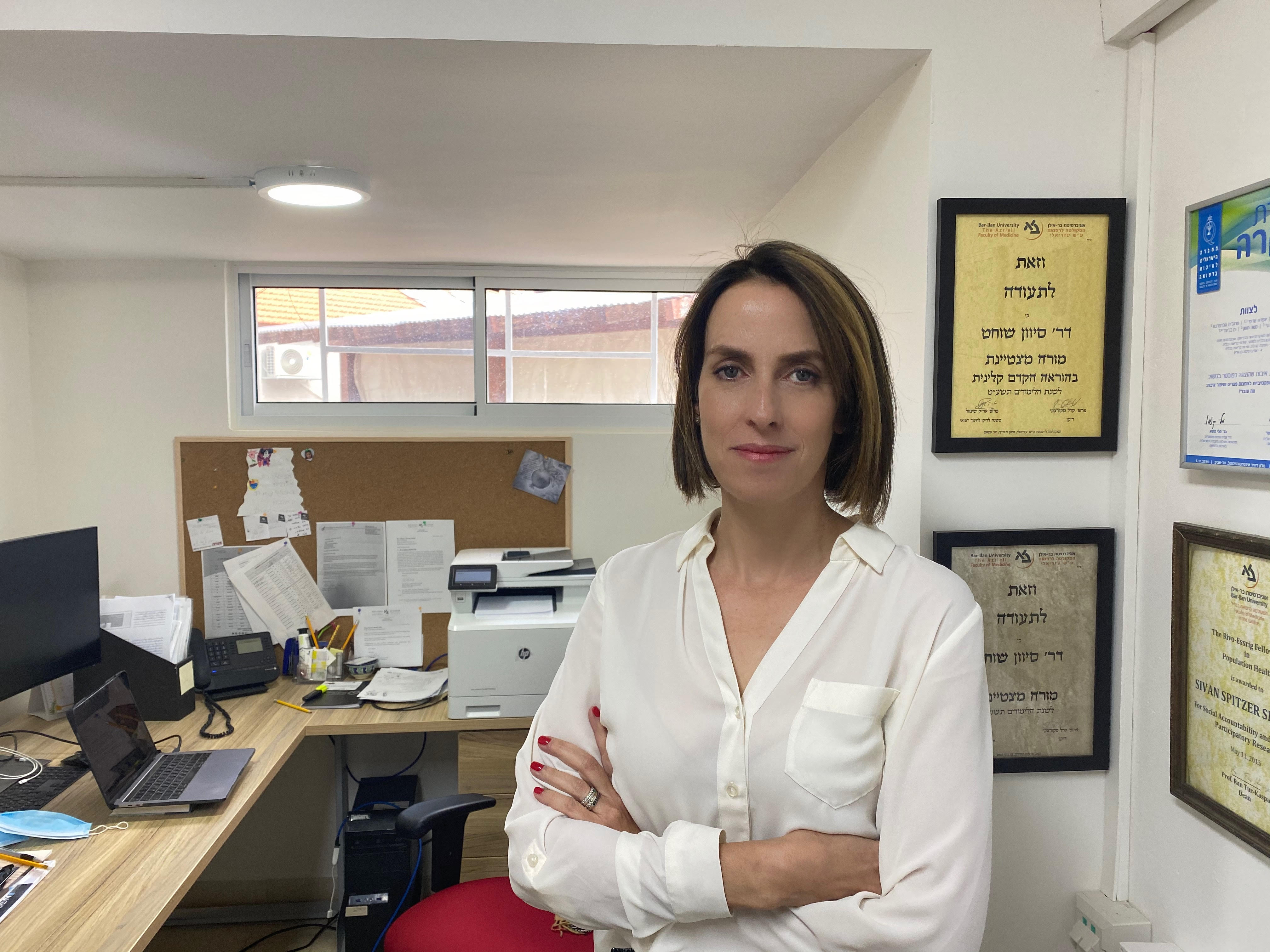Story of Impact
Can a Medical School Remake a Region? BIU’s Flagship Program is Taking Up the Challenge

Most people would agree that jargon is annoying. But as medical students involved in an innovative program discovered, in some situations, it can be dangerous, too.
ETGAR (“Challenge”), a flagship program of Bar-Ilan, was established by the university’s Azrieli Faculty of Medicine in Safed to address a persistent problem: the high rate of readmissions of the North’s disadvantaged populations, with negative consequences for both patient outcomes and healthcare costs. Part of the Faculty’s unique—and compulsory—Social Accountability course, which requires students to undertake an eight-month placement in one of twelve participating community organizations in the city, ETGAR aims to cultivate a greater sensitivity to social determinants of health among the North’s sizeable Bedouin, Druse, Ethiopian, Muslim, Circassian, Christian-Arab, and ultra-Orthodox sectors. By training medical students to first identify and then assist disadvantaged patients in their transition from hospital to home, ETGAR works to increase patients’ health literacy and ability to manage their health, while at the same time granting the future doctors of Israel’s North the skills they need for reducing health inequities.
And those skills, it turns out, include the ability to write easy-to-understand hospital discharge papers.
“What we realized was that many patients simply don’t understand their discharge papers, which contain the medical instructions they need to effect the healing process at home,” explains Etgar’s Dr. Sivan Spitzer-Shohat. Today, Spitzer-Shohat runs the program founded by her and world-renowned population-health expert Dr. Mary Rudolf, a professor emeritus at the Azrieli Faculty and one of the architects of its pioneering work with diverse cultural groups in the Galil. “Moreover, we realized that discharge processes are often too rushed and instructions not communicated clearly, resulting in medication discrepancies of almost 50 percent among ETGAR patients.”
To address the issue, ETGAR teaches “the art of simplification,” or, as Spitzer-Shohat puts it, “writing instructions that patients can read, and speaking to patients in ways they can understand.” In many cases, that means translating into more straightforward terms; in others, it means simply translating. “We invested in a student-run staff that could translate instructions into Arabic and Russian, whatever it takes to make sure that when a patient begins his journey home, he’s as prepared as possible to take responsibility for the next phase of healing.”
Since the patient’s discharge from hospital is only the beginning of their journey, the medical students’ responsibility is far from over, too. As part of ETGAR, students conduct a follow-up home visit in which they review the simplified discharge letter with the patient, check patients’ medications to make sure they’re being taken correctly, and discuss any other medical instructions. They also assess the patients’ home and social environment, and if necessary liaise with relevant community services. The visit is followed by a phone call to the patient a week later to assess how he or she is coping.
To date, ETGAR has facilitated home visits to more than 1,300 patients and interviewed more than 300 patients about the effect the program has had on both their health and their lives. “The feedback exceeded our expectations. Patients told us not only how much more informed they were about their medical condition, but how empowered they felt to take control of their health from now on,” Spitzer-Shohat says.
Azrieli’s medical students also have positive feedback about the effects of ETGAR: They report feeling more confident in communication with patients and show increased awareness of and sensitivity to the social factors that influence health. In recognition of its impact on the North—and its potential to change the face of medicine everywhere—Bar-Ilan selected ETGAR as its flagship program, with funding earmarked by Israel’s Council for Higher Education.
For dean of the faculty Prof. Karl Skorecki, Etgar exemplifies the medical school’s—and Bar-Ilan’s— unique sense of purpose. Not just, that is, providing a superb education, but also having a meaningful and sustainable impact on the North, a region that still lags—both socially and economically—behind Israel’s center.
“Choosing to practice medicine in Israel’s North is challenging, both professionally and personally,” explains the Harvard-trained expert in human-population genetics. “But the Azrieli Faculty aims to be not ‘just’ an outstanding medical school. We also seek to improve the social and economic fabric of Israel’s last frontier, and we want our students and faculty to be part of that mission.”
Through programs like ETGAR, which reimagine the role of a medical school in society, the Azrieli Faculty is indeed rising to the challenge—and succeeding in changing the face of the North at the same time.